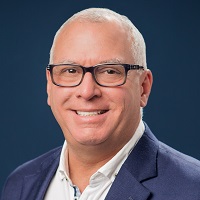For a Sunny Retirement, Have a Rainy-Day Fund
A nice stash of extra cash is always a good idea, and it could be especially important for those who don’t have paychecks coming in anymore.


Profit and prosper with the best of Kiplinger's advice on investing, taxes, retirement, personal finance and much more. Delivered daily. Enter your email in the box and click Sign Me Up.
You are now subscribed
Your newsletter sign-up was successful
Want to add more newsletters?

Delivered daily
Kiplinger Today
Profit and prosper with the best of Kiplinger's advice on investing, taxes, retirement, personal finance and much more delivered daily. Smart money moves start here.

Sent five days a week
Kiplinger A Step Ahead
Get practical help to make better financial decisions in your everyday life, from spending to savings on top deals.

Delivered daily
Kiplinger Closing Bell
Get today's biggest financial and investing headlines delivered to your inbox every day the U.S. stock market is open.

Sent twice a week
Kiplinger Adviser Intel
Financial pros across the country share best practices and fresh tactics to preserve and grow your wealth.

Delivered weekly
Kiplinger Tax Tips
Trim your federal and state tax bills with practical tax-planning and tax-cutting strategies.

Sent twice a week
Kiplinger Retirement Tips
Your twice-a-week guide to planning and enjoying a financially secure and richly rewarding retirement

Sent bimonthly.
Kiplinger Adviser Angle
Insights for advisers, wealth managers and other financial professionals.

Sent twice a week
Kiplinger Investing Weekly
Your twice-a-week roundup of promising stocks, funds, companies and industries you should consider, ones you should avoid, and why.

Sent weekly for six weeks
Kiplinger Invest for Retirement
Your step-by-step six-part series on how to invest for retirement, from devising a successful strategy to exactly which investments to choose.
Do you remember, when you were a kid, how much more fun it was to play goalie in a pickup soccer game if you actually had a net behind you? You didn’t have to scramble nearly as much when your opponent surprised you and the ball blew past. The net caught it for you.
That’s kind of how it is with a rainy-day fund. You can probably get by in retirement without one, but you could be left scrambling when unexpected expenses come up.
And for most, they will come up. Maybe you’ll need to replace your old roof, your old car or your old AC unit. Perhaps you’ll want to give your daughter the funds to start her own business. Or you might decide to help your son put a down payment on a new house after he gets a divorce.
From just $107.88 $24.99 for Kiplinger Personal Finance
Become a smarter, better informed investor. Subscribe from just $107.88 $24.99, plus get up to 4 Special Issues

Sign up for Kiplinger’s Free Newsletters
Profit and prosper with the best of expert advice on investing, taxes, retirement, personal finance and more - straight to your e-mail.
Profit and prosper with the best of expert advice - straight to your e-mail.
The emergency fund you should have had when you were younger can be just as critical when you’re older. Maybe more so, because you won’t have a regular paycheck to depend on anymore.
But what I’m seeing fairly frequently these days is that even the best savers – those who diligently contribute to their 401(k) plan every month, the maximum allowed or at least to the company match – aren’t necessarily accumulating liquid assets they can easily tap into when they need extra money.
As they head for retirement, they may be in for an expensive surprise. If they choose to pull out a chunk of their tax-deferred money to pay for those unplanned costs, it could have a ripple effect they didn’t expect.
Let’s say a frugal saver who has a robust 401(k) needs a new car, and the one she chooses costs $35,000. She doesn’t want to take out a loan, so she decides to take the money from her retirement savings. What’s the harm, she asks herself; she’s over 59½, so there’s no extra penalty.
No, but there are still consequences. Because she hasn’t already paid taxes on that money, she’ll have to pay taxes on those withdrawals as though it were ordinary income. To buy that $35,000 car with her 401(k) funds, she’ll have to take out an extra 20% to 30% to cover the taxes. And if the market is down when she withdraws the money, it could have an even more significant long-term impact.
The usual recommendation is to have enough in an emergency fund to cover at least six months’ worth of expenses in case you can’t work or you lose your job. In retirement, though, it’s a little different. You’ll have Social Security, your pension (possibly) and other income streams to cover day-to-day costs. Your savings will be for extra needs and wants. You may wish to sit down and think in terms of potential emergency situations to arrive at a reasonable amount. Or you can keep it simple and sock away a lump sum of $50,000, $100,000 or more, based on your lifestyle or any big expenses you might see coming down the road.
You’ll also want to stay disciplined about replenishing that rainy-day fund and work it into your overall retirement plan.
I often advise clients who expect to retire in two to three years – who still have good cash flow from working at their job but are winding things down – to contribute just enough to their 401(k) to get their employer’s matching contribution and shift the rest to a savings or money market account to build up a cash reserve. They may even decide to stop their contributions altogether.
It isn’t easy to move money from an account that’s earning money to one that pays almost nothing – I get that. You’ll need some money immediately accessible in cash at your bank, but consider keeping the remainder of your emergency savings in money market funds or a money market account. These earn interest, are easy to liquidate and come with low or no penalties for withdrawals.
The important thing is we want to make sure there’s some emergency money available, because even if you’re debt-free, one big bill could have a significant impact on your retirement plan. Ultimately, your emergency fund is to protect your income-producing investments, and the more you have in your retirement rainy-day fund, the less likely you’ll need to tap your investments.
Financial professionals talk a lot about the importance of proper asset allocation when deciding in which financial vehicles to put your retirement money. But this simple but vital asset – money set aside for liquidity and enjoyment – is often overlooked. Talk to your financial professional about how and when you should build a cash reserve into your plan.
Kim Franke-Folstad contributed to this article.
Profit and prosper with the best of Kiplinger's advice on investing, taxes, retirement, personal finance and much more. Delivered daily. Enter your email in the box and click Sign Me Up.

Bryan S. Slovon is founder and CEO of Stuart Financial Group, a boutique financial services firm exclusively serving retirees and soon-to-be retirees in the D.C. metro area. He is an Investment Adviser Representative and insurance professional focusing on retirement planning and wealth preservation to a select group of clients. (Advisory services offered through J.W. Cole Advisors, Inc. (JWCA). Stuart Financial Group and JWCA are unaffiliated entities.)
-
 Dow Leads in Mixed Session on Amgen Earnings: Stock Market Today
Dow Leads in Mixed Session on Amgen Earnings: Stock Market TodayThe rest of Wall Street struggled as Advanced Micro Devices earnings caused a chip-stock sell-off.
-
 How to Watch the 2026 Winter Olympics Without Overpaying
How to Watch the 2026 Winter Olympics Without OverpayingHere’s how to stream the 2026 Winter Olympics live, including low-cost viewing options, Peacock access and ways to catch your favorite athletes and events from anywhere.
-
 Here’s How to Stream the Super Bowl for Less
Here’s How to Stream the Super Bowl for LessWe'll show you the least expensive ways to stream football's biggest event.
-
 How to Add a Pet Trust to Your Estate Plan: Don't Leave Your Best Friend to Chance
How to Add a Pet Trust to Your Estate Plan: Don't Leave Your Best Friend to ChanceAdding a pet trust to your estate plan can ensure your pets are properly looked after when you're no longer able to care for them. This is how to go about it.
-
 Want to Avoid Leaving Chaos in Your Wake? Don't Leave Behind an Outdated Estate Plan
Want to Avoid Leaving Chaos in Your Wake? Don't Leave Behind an Outdated Estate PlanAn outdated or incomplete estate plan could cause confusion for those handling your affairs at a difficult time. This guide highlights what to update and when.
-
 I'm a Financial Adviser: This Is Why I Became an Advocate for Fee-Only Financial Advice
I'm a Financial Adviser: This Is Why I Became an Advocate for Fee-Only Financial AdviceCan financial advisers who earn commissions on product sales give clients the best advice? For one professional, changing track was the clear choice.
-
 I Met With 100-Plus Advisers to Develop This Road Map for Adopting AI
I Met With 100-Plus Advisers to Develop This Road Map for Adopting AIFor financial advisers eager to embrace AI but unsure where to start, this road map will help you integrate the right tools and safeguards into your work.
-
 The Referral Revolution: How to Grow Your Business With Trust
The Referral Revolution: How to Grow Your Business With TrustYou can attract ideal clients by focusing on value and leveraging your current relationships to create a referral-based practice.
-
 This Is How You Can Land a Job You'll Love
This Is How You Can Land a Job You'll Love"Work How You Are Wired" leads job seekers on a journey of self-discovery that could help them snag the job of their dreams.
-
 65 or Older? Cut Your Tax Bill Before the Clock Runs Out
65 or Older? Cut Your Tax Bill Before the Clock Runs OutThanks to the OBBBA, you may be able to trim your tax bill by as much as $14,000. But you'll need to act soon, as not all of the provisions are permanent.
-
 The Key to a Successful Transition When Selling Your Business: Start the Process Sooner Than You Think You Need To
The Key to a Successful Transition When Selling Your Business: Start the Process Sooner Than You Think You Need ToWay before selling your business, you can align tax strategy, estate planning, family priorities and investment decisions to create flexibility.